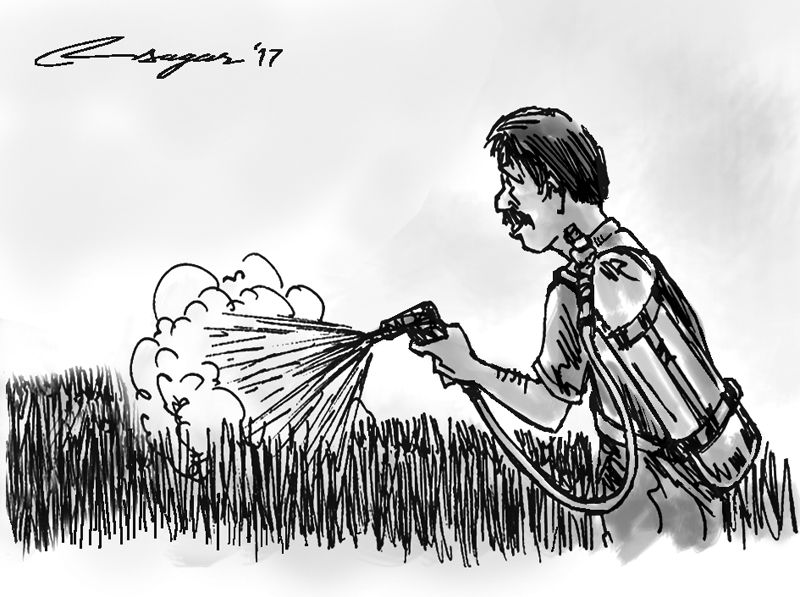Govt to define residue limit of pesticides, chemicals in every vegetable, fruit
Kathmandu, August 23
Amid the use of excessive pesticides and other chemicals in farming of fruits and vegetables increasing at an alarming rate, which is a threat to human health, the government is preparing to define the residue limit of every chemical and pesticide used in agriculture.
The Department of Food Technology and Quality Control (DoFTQC) has prepared a draft of the guideline to regulate the use of pesticides and other chemicals in vegetables and fruits, which the department officials expect to be passed by the government soon.
“Due to lack of legally defined criteria for usage of pesticides and chemicals in fruits and vegetables, our inspections and actions have not been much effective so far,” informed Purna Chandra Osti, spokesperson for DoFTQC, adding that enforcing the chemical residue limit legally will help curb the increasing usage of excessive chemicals in fruits and vegetables.
As per Osti, the guideline will determine the pesticide and chemical residue limit in every vegetable and fruit.
DoFTQC’s past inspections had found maximum usage of chemicals like calcium carbide, organophospate and wax in fruits and vegetables to quicken their ripening process and make them appear more attractive.
Currently, the government has set up a laboratory at the Kalimati Fruits and Vegetables Market to check the residue of pesticides and chemicals in fruits and vegetables. The lab test has revealed excessive use of pesticides and chemicals in the produce supplied to the Kalimati market time and again. However, in the want of strong legal provision regarding residue limit in fruits and vegetables, the government has not been able to moot strong action against the offenders.
Normally, the Rapid Bioassay for Pesticide Residue Laboratory in Kalimati allows chemical residue of up to 35 per cent in fruits and vegetables. However, pesticide and chemical residue in some fruits and vegetables were recorded as high as 85 per cent in the past.
A few weeks ago, Dr Sher Bahadur Pun, coordinator of Clinical Research Unit at Teku Hospital had informed The Himalayan Times that cases of people suffering from various health ailments after consuming artificially ripened fruits had been increasing notably.
Among other chemicals, farmers basically inject calcium carbide to ripen fruits and vegetables faster. Once dissolved in water, the calcium carbide produces acetylene gas, which acts as an asphyxiant and may affect the neurological system by inducing prolonged hypoxia. This ultimately leads to headache, dizziness, mood disturbances, memory loss and seizures.






